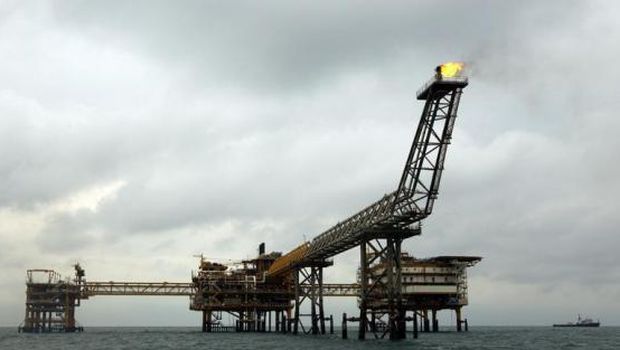
The SPQ1 gas platform is seen on the southern edge of Iran’s South Pars gas field in the Gulf, off Assalouyeh, 621 miles (1,000 kilometers) south of Tehran, on January 26, 2011. (Reuters/Caren Firouz)
Kuwait, Reuters—Kuwait’s oil minister said his country was looking to sign an agreement with Iran to secure much-needed natural gas supplies.
The minister’s comments to the state news agency KUNA late on Sunday came on the sidelines of a visit by Kuwait’s Emir, Sheikh Sabah Al-Ahmed Al Sabah, to Iran, the first by a ruler of the US-allied Gulf Arab state since the 1979 Islamic Revolution.
“Iran has large quantities of gas and Kuwait is in need of Iranian gas through cooperation between the two countries,” KUNA quoted Ali Saleh Al-Omair as saying while in Tehran.
The oil-rich OPEC producer lined up 15 billion US dollars’ worth of gas supply from BP and Royal Dutch Shell last month to help meet soaring demand.
Kuwait also signed a contract to import liquefied natural gas (LNG) from fellow Gulf state Qatar to help meet its energy needs to the end of 2014 in April.
Iran sealed a preliminary agreement to export gas to the Gulf state of Oman in March, after an agreement dating back to 2005 was revived during a visit of Iranian President Hassan Rouhani to the capital Muscat.
Demand for gas in the Gulf Cooperation Council (GCC) states is rising on the back of growing populations and an industrial boom.
Still, some analysts have said that Iran, which holds the world’s largest gas reserves, is unlikely to provide a quick supply fix for gas-hungry Gulf states, even if it reaches a deal with world powers over its nuclear program and sanctions are lifted.
Iran has been prevented from exporting much of its natural gas because of Western sanctions over its contested nuclear program.
Kuwait, home to a sizeable Shi’a Muslim minority, is seen by some as a potential bridge between Iran and the Gulf Arab states, including the main power Saudi Arabia, with which relations remain strained, not least because of opposing stances over the Syria conflict.
